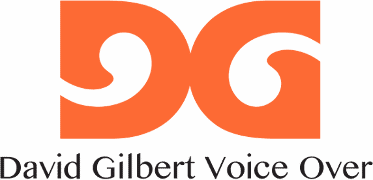Following shortly, Walt Disney voiced the Mickey Mouse character in the short animation Steamboat Willie. This marked the advent of Mickey Mouse’s long-standing success on screen and boosted the cartoon toward becoming one of the most famous animation characters in the world today.
The Warner Brothers company was not far behind. Together with Leon Schlesinger Productions and Mel Blanc as the starring voice actor, Looney Tunes was born. “The Man of a Thousand Voices”, as Mel was rightfully nicknamed, began a successful career in voiceover acting, breathing life into famous characters like Bugs Bunny and Tweety Bird, among others.
Mel Blanc set the standard for voiceover acting pretty high, also managing to secure on-screen credit for his voice roles. Other voice actors had not received the same benefit until Blanc demanded his rights and set the stage for those following in his footsteps.
So, what is voiceover and how can this service help modern businesses flourish?
What Is Voiceover?
Voiceover is the art of lending one’s voice to various visual-based projects. A voice actor is a professional that generally has some form of training in the field or someone that has raw talent in changing his voice to imitate or invent voices for film characters, radio, or television.
Voiceover is used in animated feature films, animated short films, TV commercials, TV shows radio spots, foreign film dubbing, video games, audiobooks, puppet shows, radio dramas, and so on. This skill is used in many industries all over the world and in almost every language imaginable.
Waiting rooms, public transport, elevator, and other public announcement systems also employ voiceover artists for their needs. Voice actors perform various types of voices and are sometimes even asked to sing.
More recently, voiceover is also heavily used in e-Learning and other types of online learning modules. Newer still, voiceover apps have started popping up. Although they’re pretty basic and raw, demand will often push development further and we’ll start seeing these types of apps increase in quality over time.
Here are the main types of voiceover acting performed today:
- Commercial: this type of voiceover is used for TV, radio, online advertising, and film.
- Character: character voiceover is used for animated feature films and cartoons.
- Narration: a narrator is a voice that relays information to the audience, somewhat detached from the life of the characters, unless the narrator is also a character in the film, documentary, cartoon, or other voice-powered production.
- AI-generated: these voices are generated by computer software and can be used for film, radio, gaming, etc.
- AI-modified: similar to AI-generated voiceover.
- Automated dialogue replacement: this type of voice acting is used post-filming to improve voice quality in a film or animated feature. It can also be used to record over voices with thicker accents.
- Automated announcements: used in subway announcements, phone answering automated services, and other public announcements.
- Translation: This voiceover technique is used for dub localization, which basically means recording over a foreign language.
How to Choose a Voiceover Actor?
As previously mentioned, many industries employ the help of voice actors for various types of productions. The biggest niches to use this type of service are film and television, gaming, and translation or dubbing production houses.
Choosing the right type of voice for your voiceover project depends on a few important factors. Of course, it makes sense to first have a script that the voice actor could use to practice making up a new voice for your character.
Still, details like what age is the character, what are their likes and dislikes, do they speak with their mouth full, do they get angry and scream, do they sing, do they tell jokes, do they have a squawky voice or a thick accent? There are tons of questions you can brainstorm through before figuring out what you want your character to sound like.
More importantly, perhaps, is choosing a voice talent that is flexible and can try out different types of voices before settling on one particular one. This beginning experimental part can prove to be quite funny and enjoyable, and the actor should indeed feel free to play around with how they hear the character sounding in their own head.
It can be challenging to agree on a certain type of voice. But, make sure you don’t get stuck on particularities and be open to receiving input and considering the suggestions of your actor too. Being too strict can mean a lot of time wasted on auditions that never reach the level of voice finesse you envision for your character.
If you are serious about matching the best possible voice to the right character, some grunt work is certainly required beforehand. You’ll want to define the voice of your brand/script, make sure you create a backstory for your character, and of course have a storyboard for visual aid during auditions. The more information you provide for the actor, the most likely it is that you’ll get good delivery.
Be aware that too much information can give the exact opposite result. You don’t want to overwhelm your actor unless you want to hear them speaking in tongues.
What Are the Costs of Voiceover Service?
After you’ve done your homework and flexibly defined what you’re looking for in a voice actor, it is time to start searching for talent. You’ll find that there are thousands of voice acting professionals and this might make your job of choosing one, or a few, harder.
To avoid feeling overwhelmed, try to go for a voiceover actor with intermediate experience. Going too low could mean extra training and work to get the actor to where they need to be, and too high could cost you a pretty penny. Your budget, of course, needs to be taken into consideration when choosing your voice talent.
Most voice actors will charge by the minute or by word count. Starting at 2 minutes and going all the way up to 30 minutes of recording, the fee can begin at around $250 and settle at around $1000+. This price range depends on the individual actor’s fees and can fall lower or higher of this estimate.
Conclusion
Voice auditions can be fun but tiring. Short-listing a few good voices can be a challenge but well worth it in the long run. Choose a voice actor after you’ve figured out what works for your production. Voiceover might sound like a simple thing to pin down but it could be more challenging than you think. Thus, ensuring that the actor has all the details necessary for them to create the right voice is imperative.

